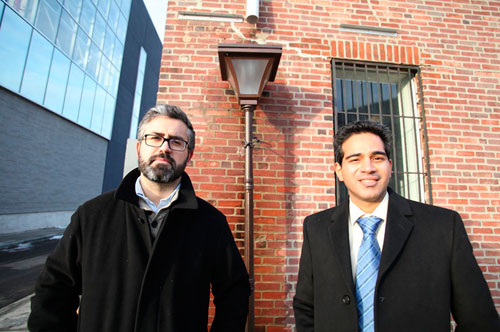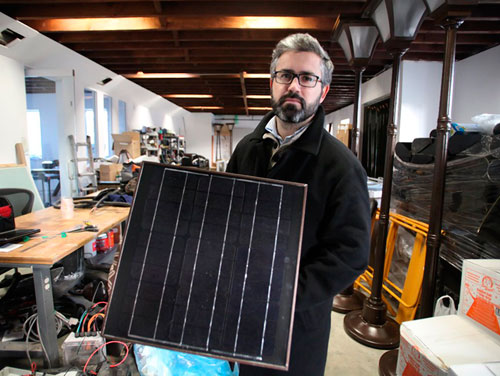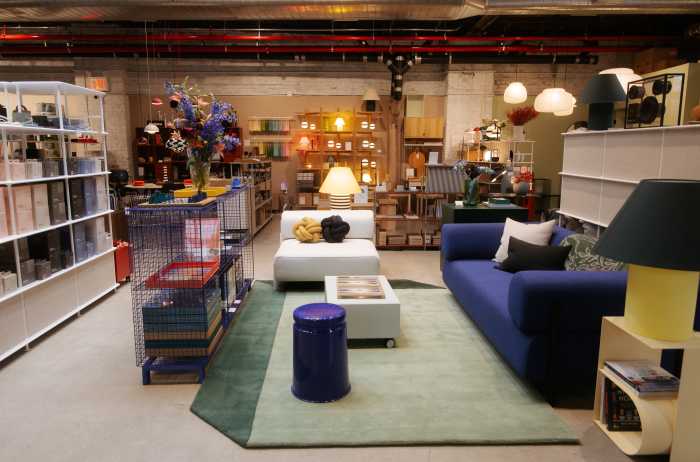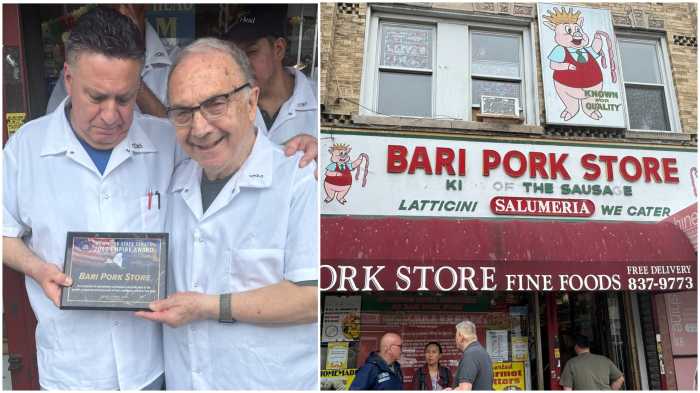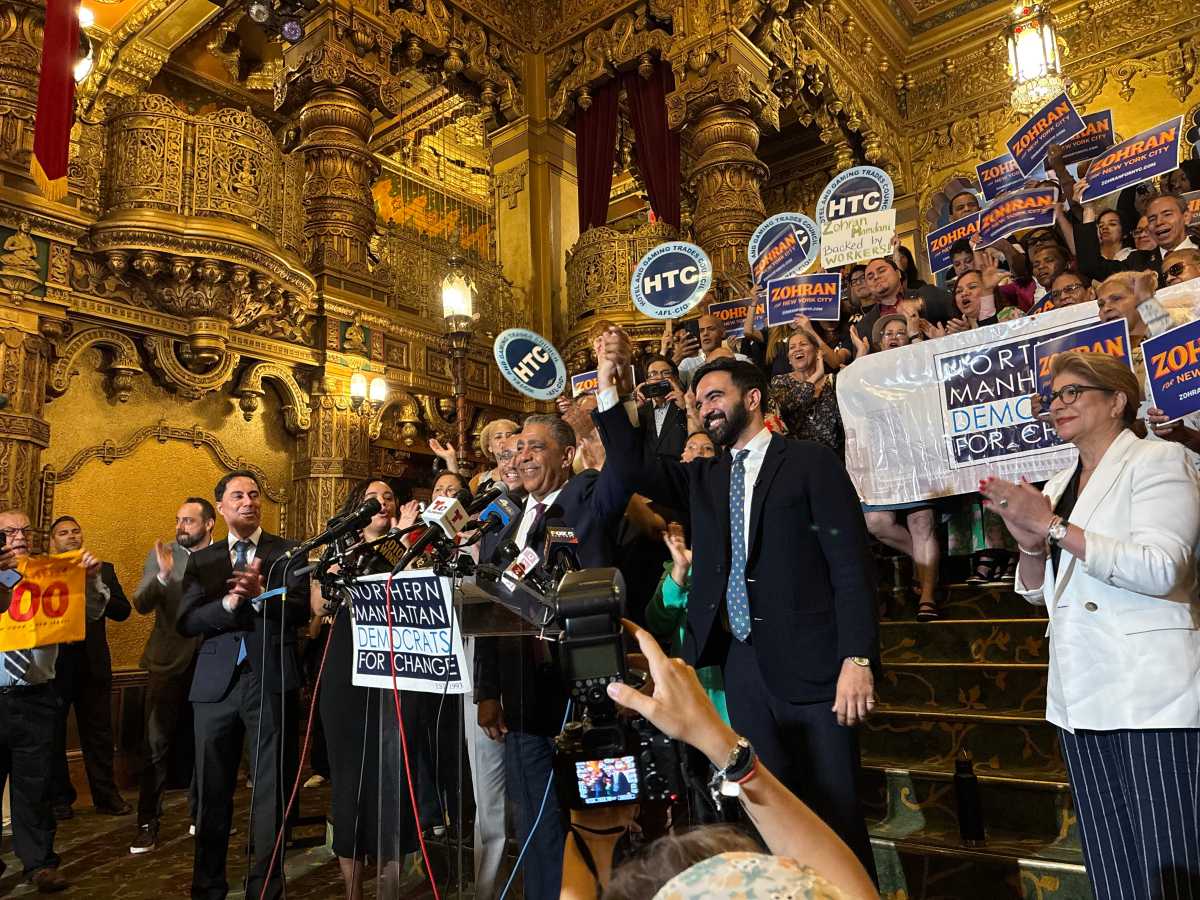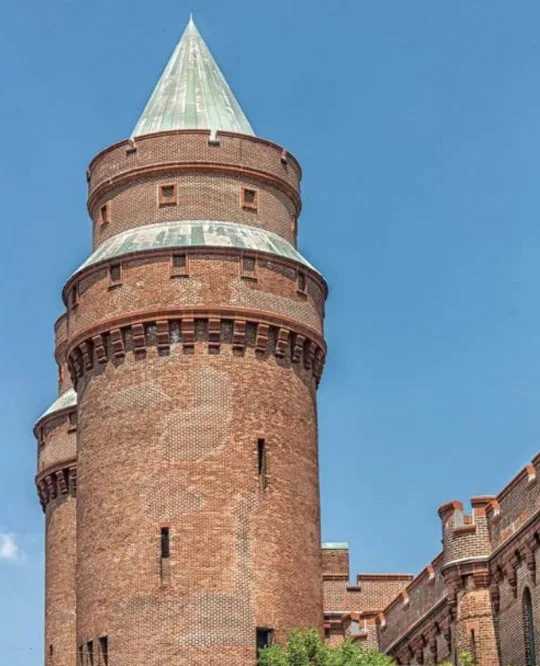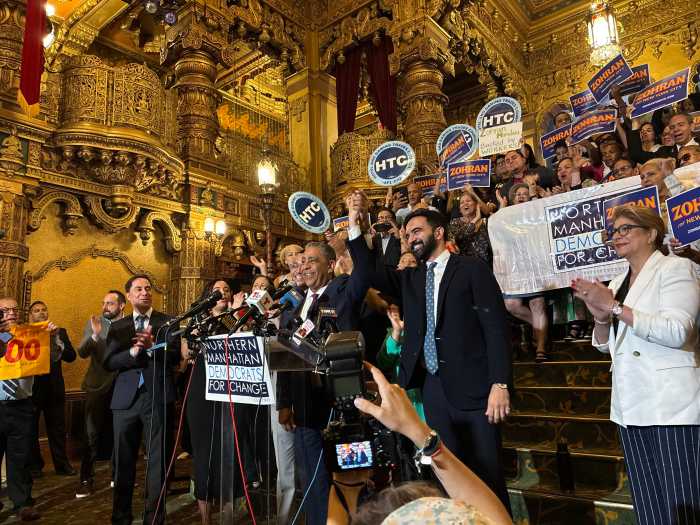A Navy Yard company is lighting up Brownstone Brooklyn.
Lumi Solair, which installed all of the street lights in the sprawling Navy Yard industrial campus, is now setting its sights on Park Slope areaways, the cement front yards that surround brownstones’ stoops. One of the company’s heads grew up on Seventh Street, and says the newfangled lamps are designed to blend in with their surroundings.
“We think it will meld nicely into the brownstone architecture,” said Gerard Gorman, president and chief operating officer of the company.
Gorman got the idea from his mother, who wanted to light the area in front of her house. The lamps used for that traditionally require a gas or electrical hookup, which can be expensive to install, Gorman said. He thinks the solar lights his company sells are prime substitutes, since they are completely self-contained. All you have to do is bolt one down, or cement it into place.
“They are affordable and easy to install,” he said.
The same Lumi Solair lanterns can be used as portable lighting for events or for outdoor seating areas at restaurants. The lamps feature a flat top to soak in the rays, and a battery at the base. They turn on automatically when the natural light is low, and turn off when it gets sunny.
The seven-year-old company, which is a subsidiary of another Navy Yard tenant, Duggal, mostly sold large-scale installations of its lamps before creating this consumer-friendly version, which retails for around $1,000. The lighting system at the Navy Yard posed a lot of challenges, in part because the locations of the streetlights were decided before the industrial park’s planners considered using solar energy.
“It was an interesting case study for this type of technology,” said Fernando Mendoza, director of operations for the company. “The lamps were placed where lamps should be, but no thought was given to sun exposure.”
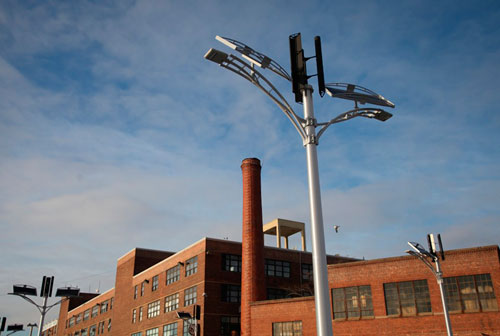
Lumi Solair’s first-generation streetlights sport wind turbines and solar panels up top. But in cramped areas such as the side streets of the Navy Yard, where it has installed 160 lights, the company found that turbines do not really provide much power. And the regular maintenance the moving parts require makes them a hassle, Mendoza said.
“Turbines need decently steady winds,” he said. “They don’t get that in an urban environment because of the way wind moves through the buildings.”
So the company improved its solar panels. Its newer Swan model features a panel with a concave curve that can power the streetlights for 12 to 14 hours without any help from the wind, Mendoza said.
Lumi Solair’s freestanding brick building, located next to the Duggal Greenhouse event space, is used for staging and research and development. For most orders, the company ships the materials straight to the customer’s location and assembles them on site. The parts are manufactured by various companies, about 70 percent of them in the U.S., according to Lumi Solair.
Even the large streetlights are easy to install, taking about two hours to hoist into place and secure, per the company. The solution saved the Navy Yard about $600,000 in installation costs compared to what it would have paid for traditional electric lights and connections to its internal grids, and the sun-powered lights save $11,000 in energy costs a year, Mendoza said.
Techno Files
The Brooklyn iOs Developers group is having its first meetup about coding for the Apple Watch at Huge on Feb. 25. Nick Lee from Tendigi will give an overview of the watch’s software development kit, Huge’s Leandro Basil will talk about designing for the device, and a team from Eleks Labs will talk about the prototype watch it made that can control a Tesla.
• • •
The Red Hook internet service provider Brooklyn Fiber is now offering an ultra-fast broadband connection in Industry City. The new service is significantly faster than other connections available in the city and should help draw businesses to the Sunset Park waterfront complex that need to transfer large amounts of data.
